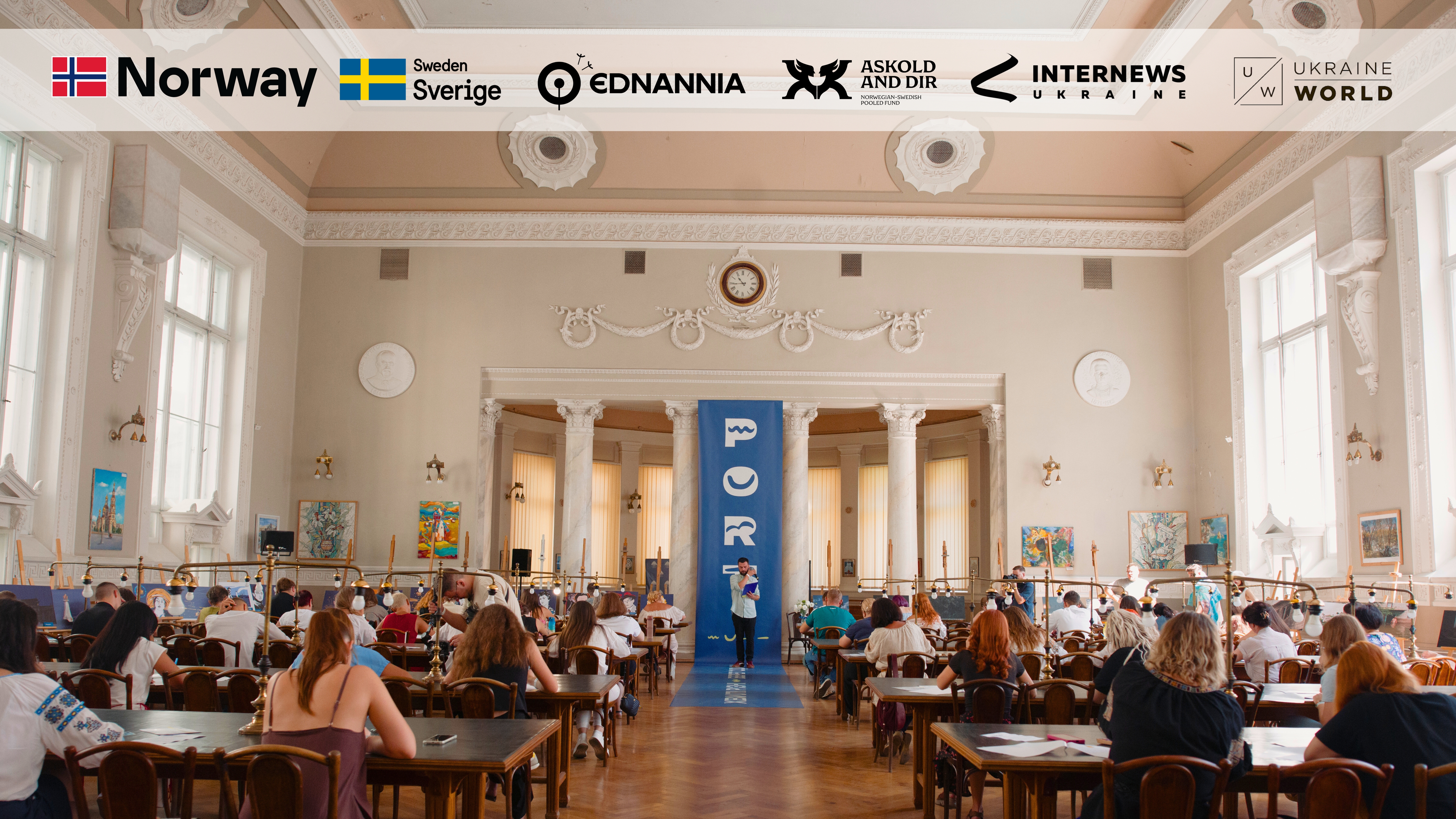
"What is born of true love always stands out. That’s exactly what the first Port Literary Festival in Odesa felt like. If I had to describe it in just a few words, they would be: noble, profound, and beautiful." — Kateryna Kalytko
The last two days of summer in Odesa were marked by the Port Literary Festival — an event that rethinks the past and gives voice to new meanings of southern Ukraine.
"Odesa, which for decades lived in an imperial cultural haze, now needs renewal — an honest, living conversation about itself, about language, literature, memory, and the future. The Port Festival is a contribution to this process, an attempt to see Odesa in a Ukrainian and Black Sea context, rather than a post-Soviet one," the organizers write.
In this article, we spoke with the festival's program director Andriy Khaietskyi and communications manager Ihor Filippov, and reflect on what the southern capital of Ukraine feels like in wartime.
This year's Port Festival was held for the first time across two venues: the Odesa Academic Puppet Theater and the Odesa National Scientific Library — one of the oldest libraries in Ukraine, long serving as a cultural hub for locals.
Book presentations, public discussions, performances, workshops, podcast recordings. Writers, publishers, journalists, researchers, and all those who want to "think about Odesa and the South freely, in a modern way, and in Ukrainian" gathered at the Port.
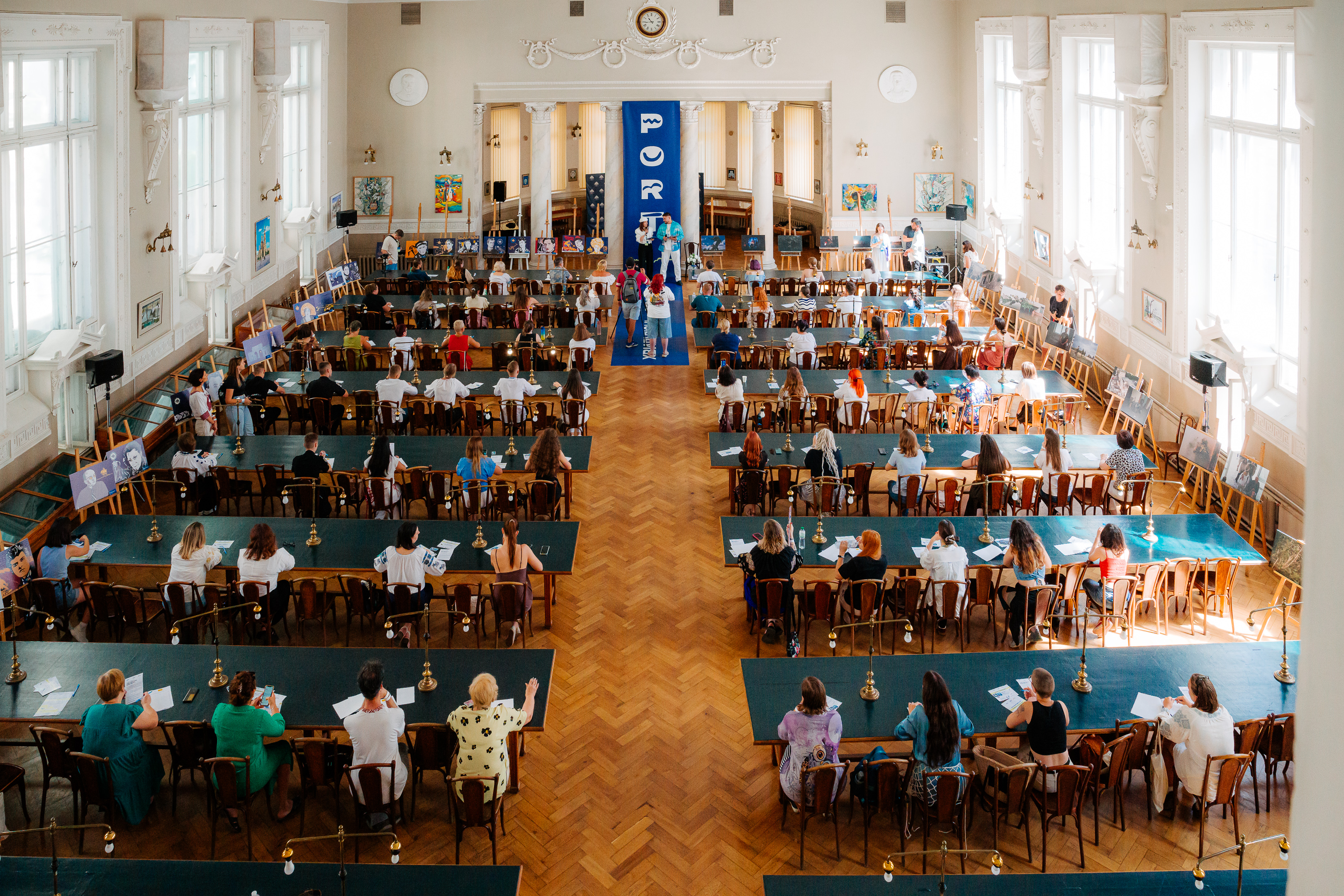
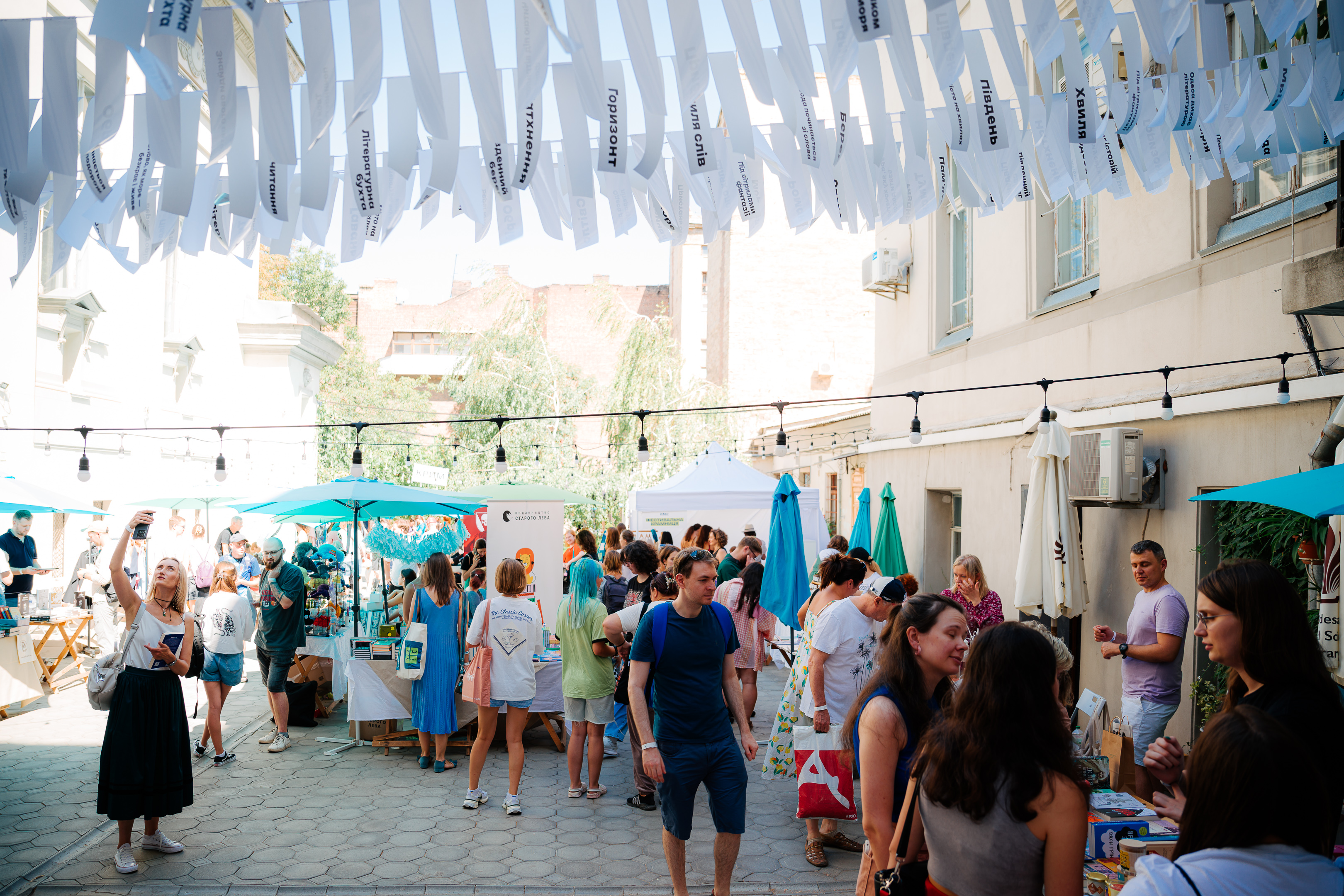
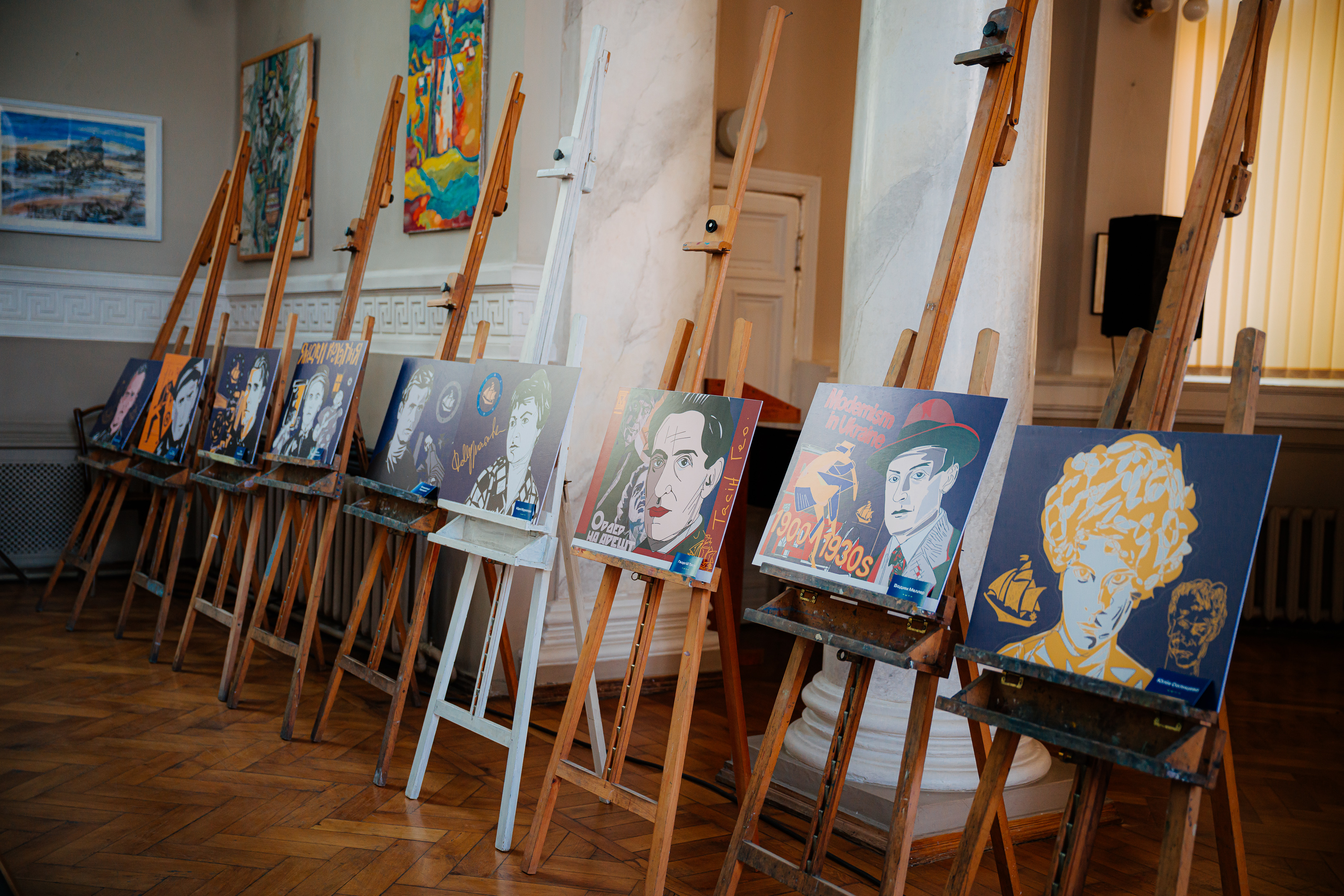
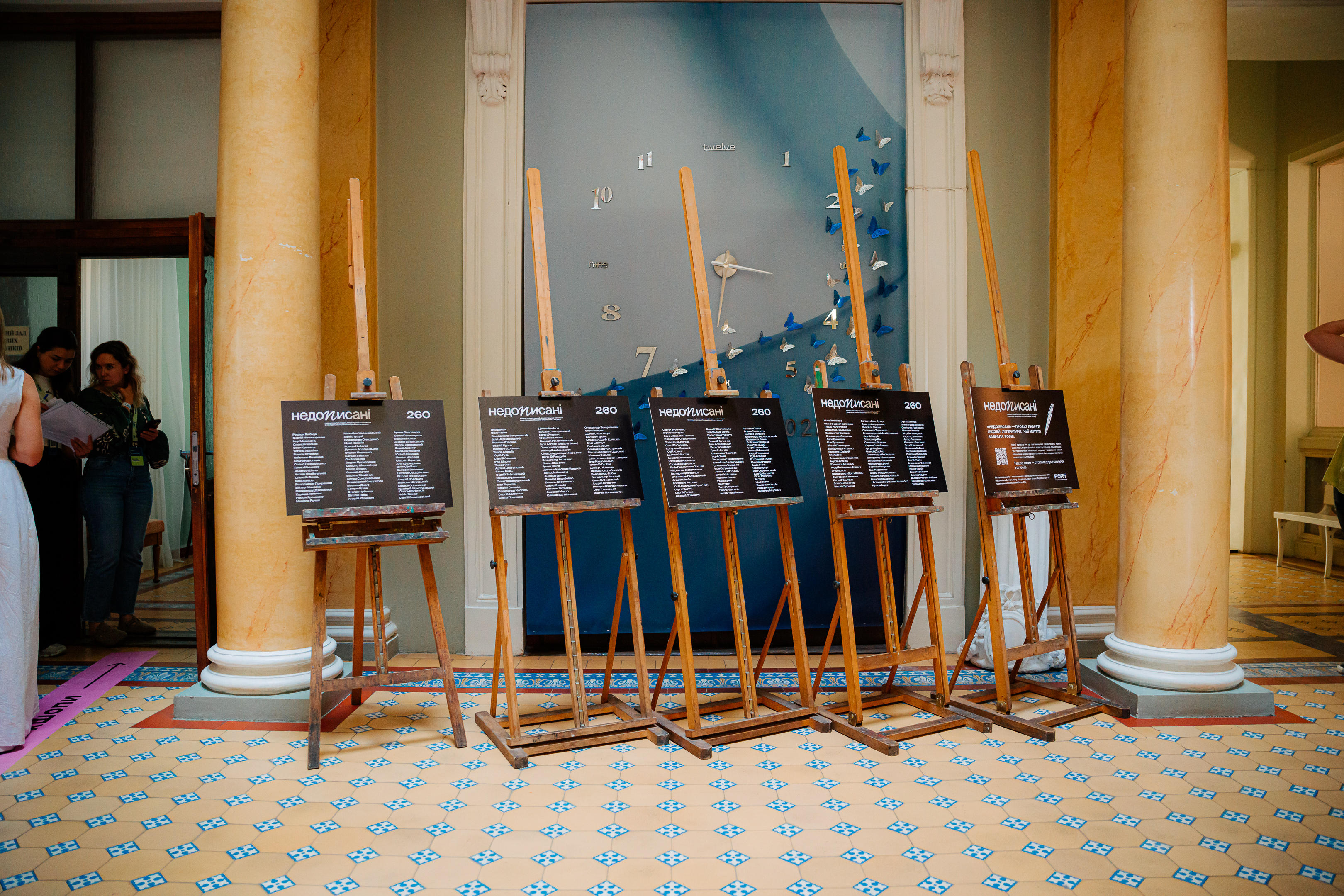
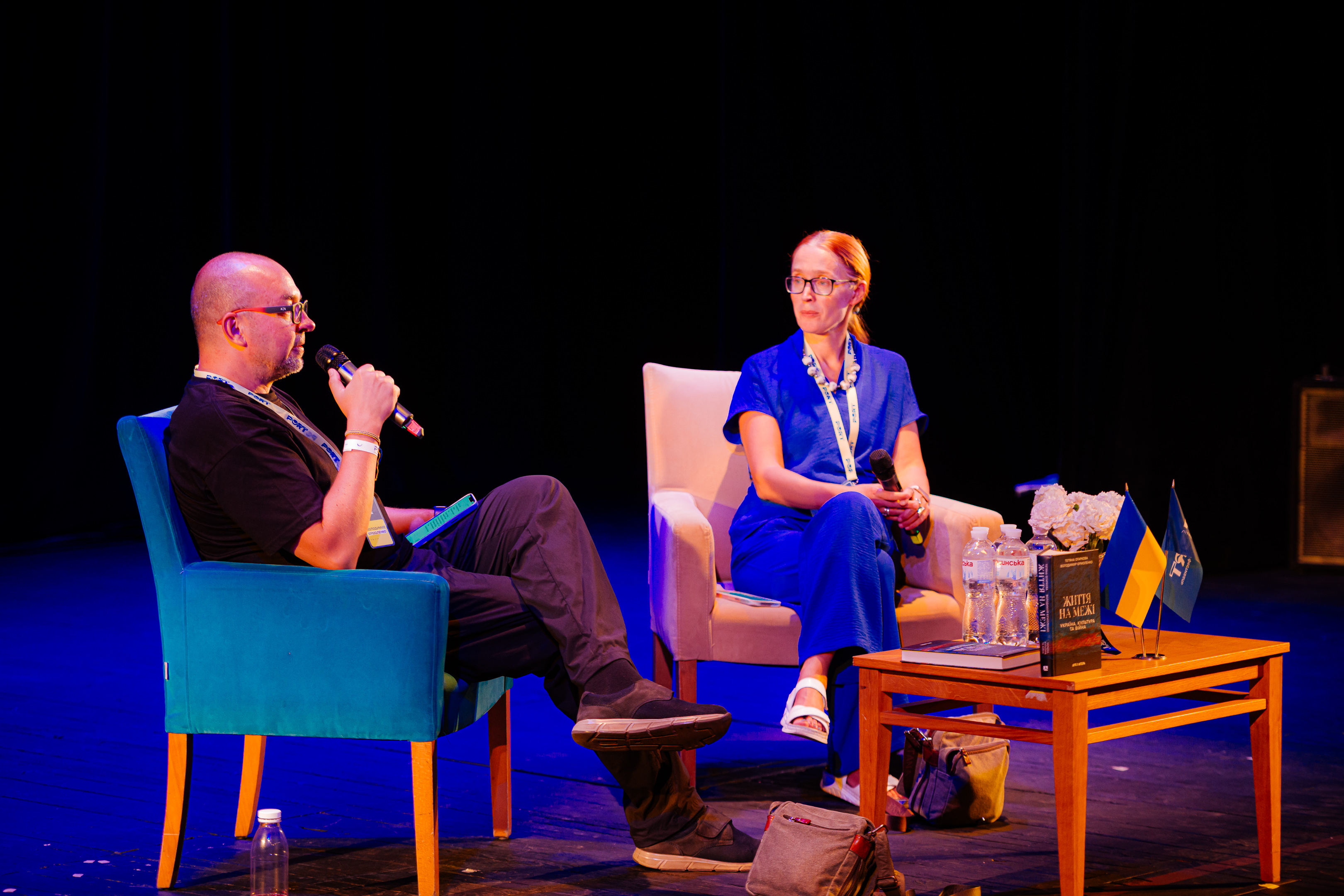
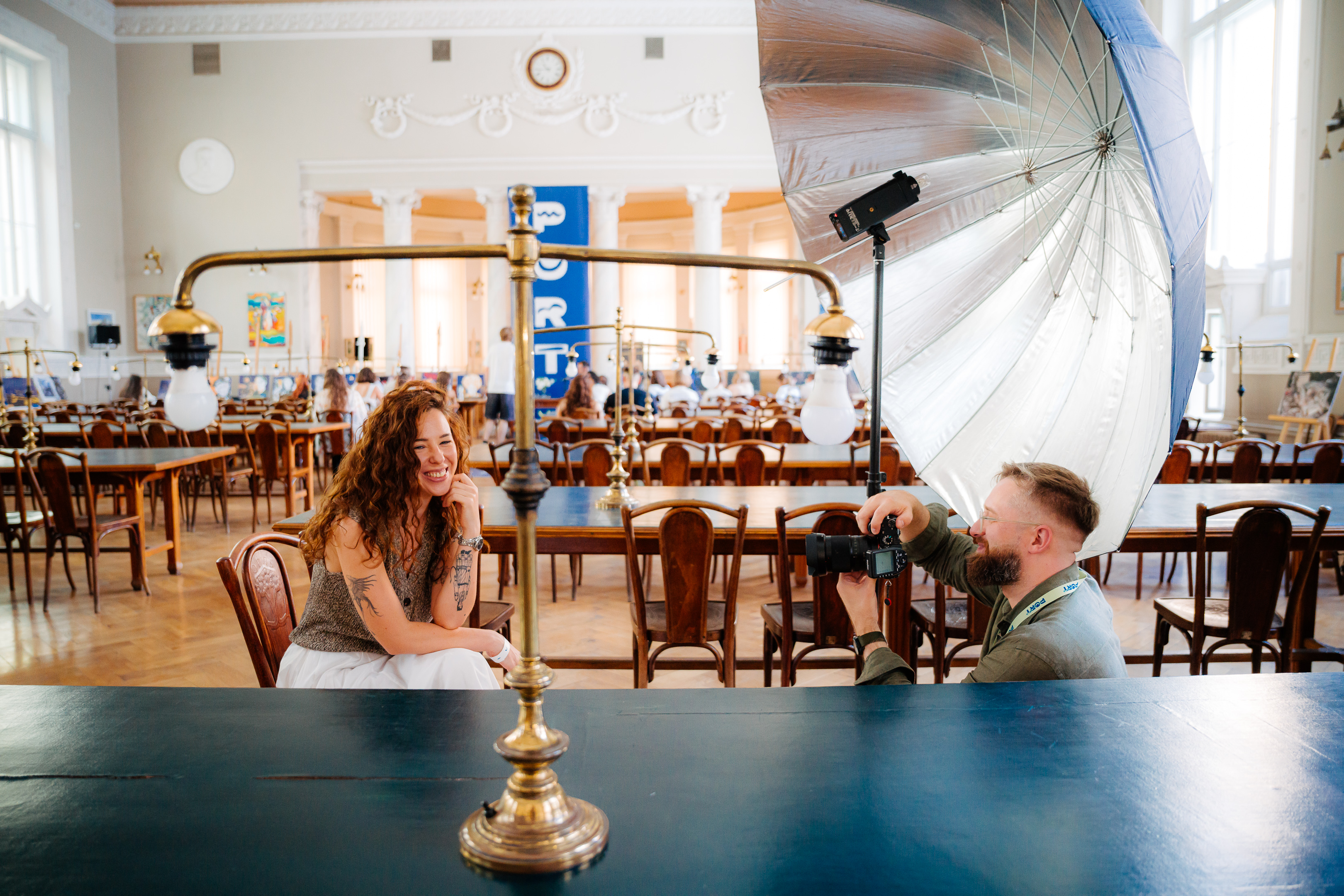
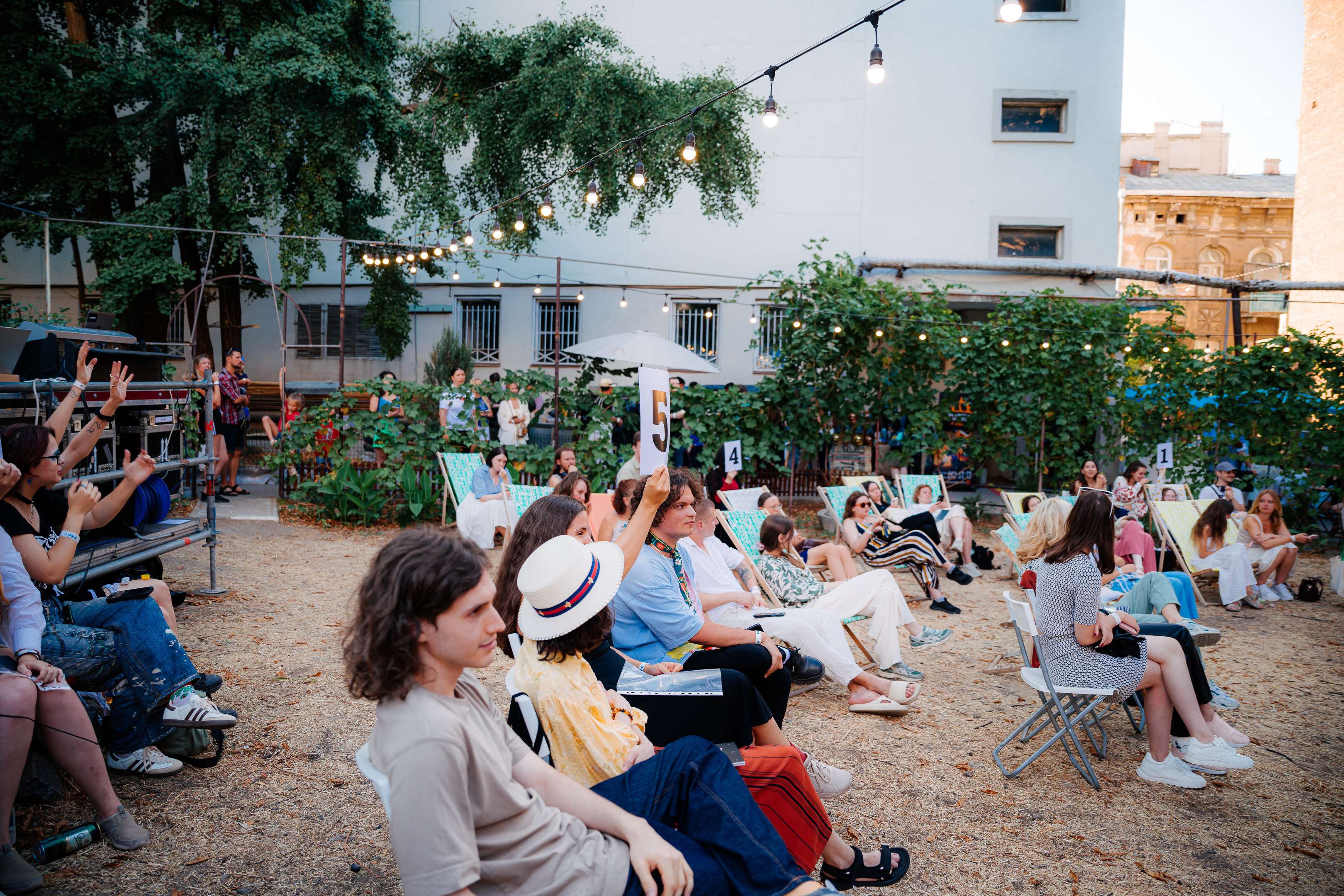
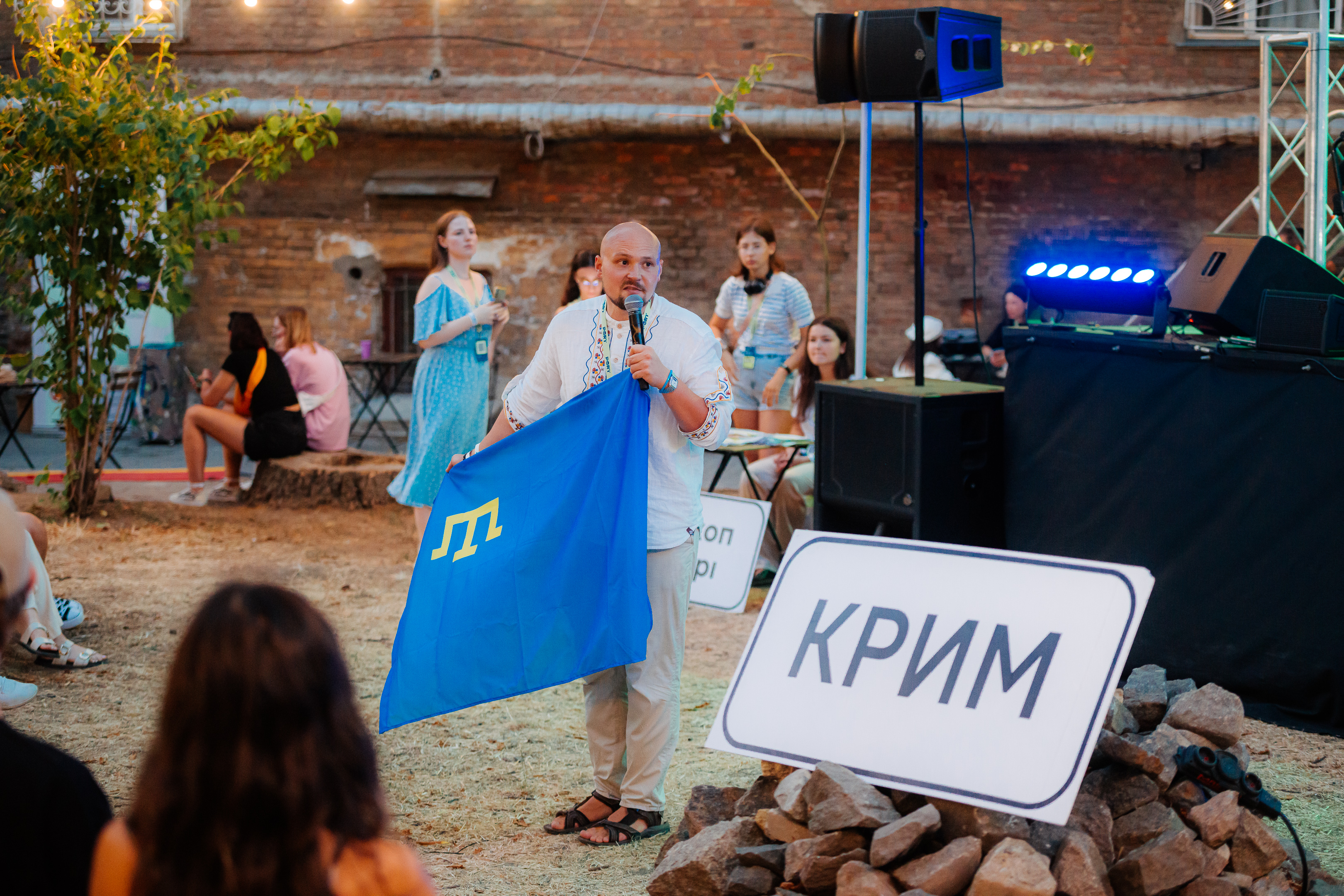
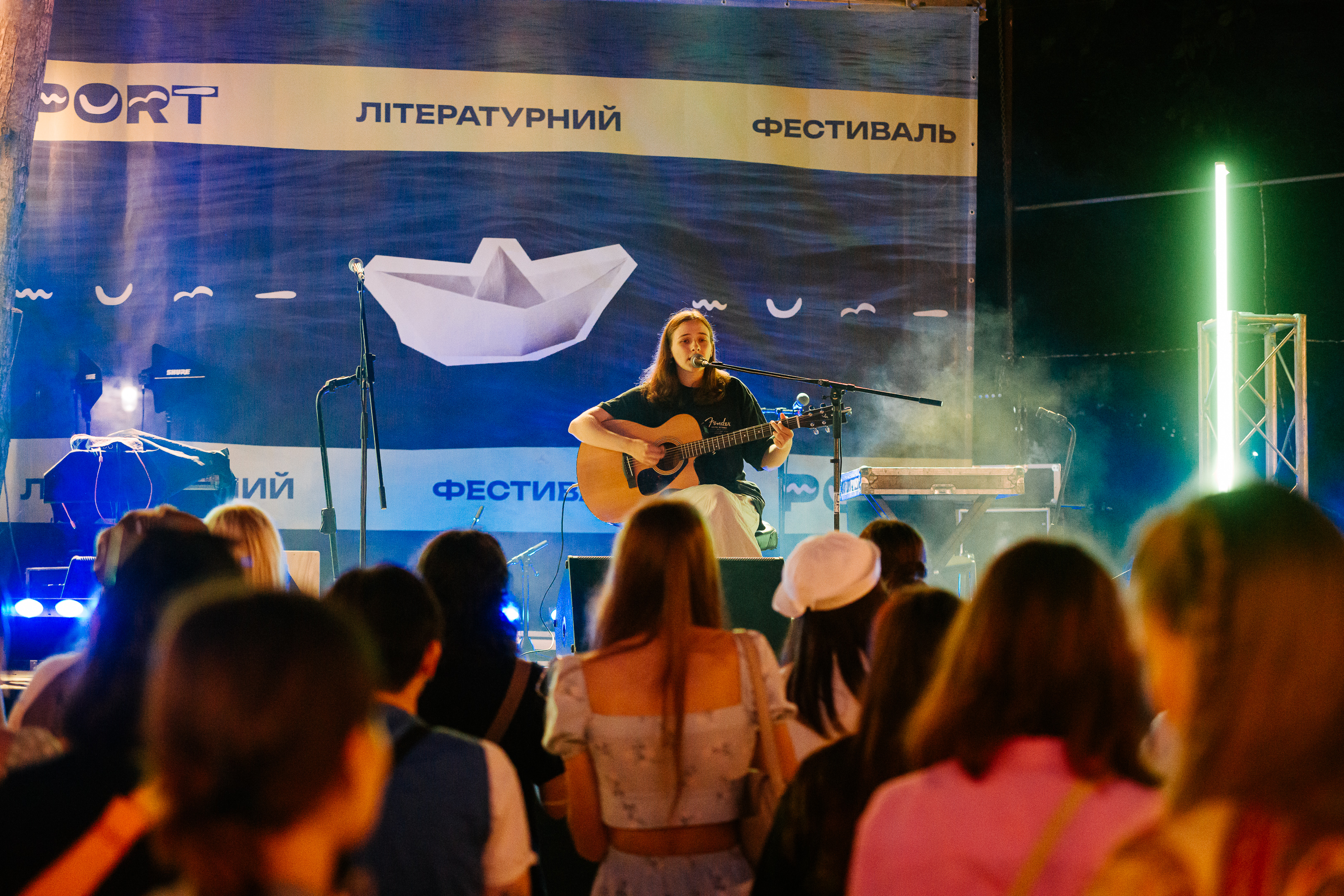
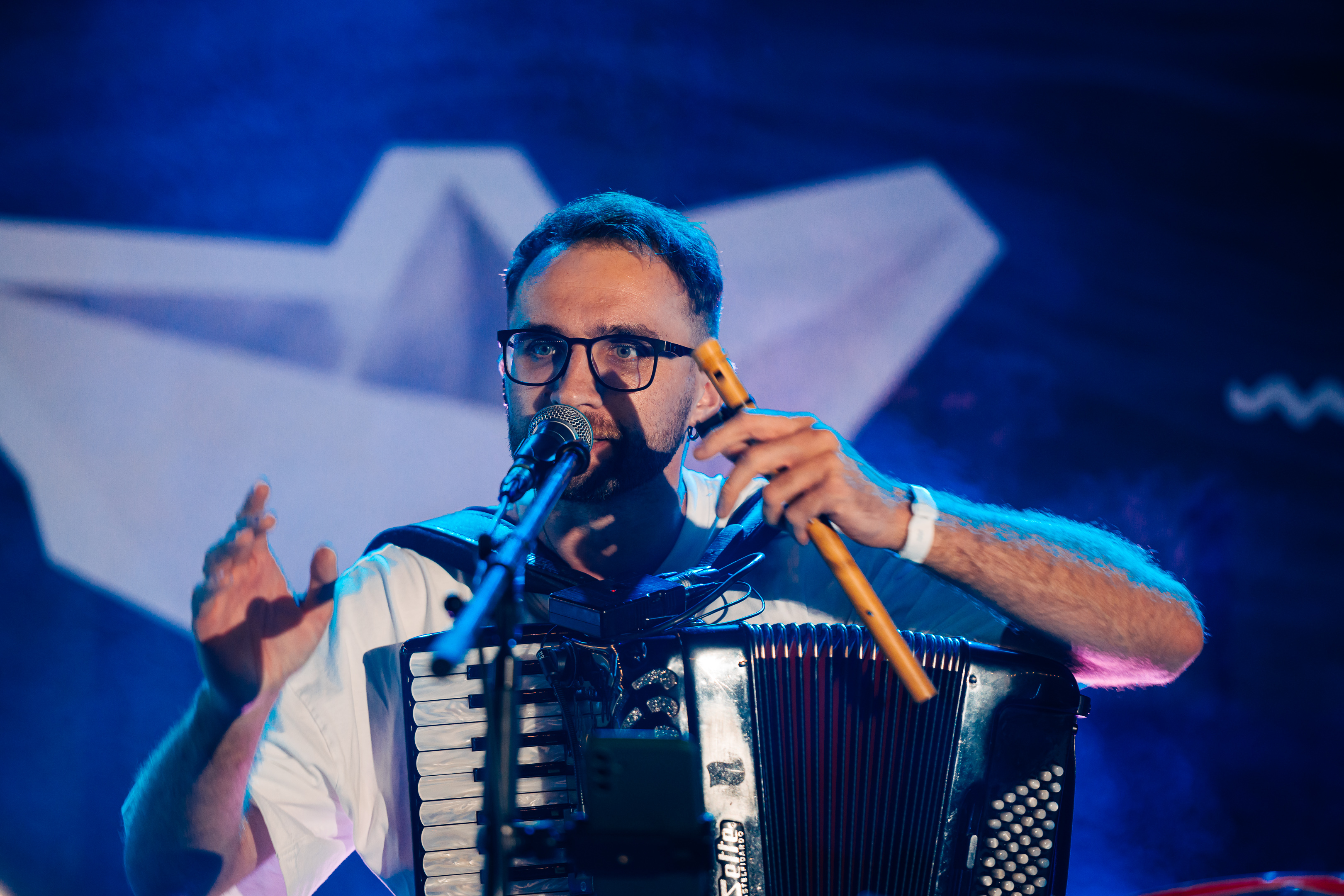
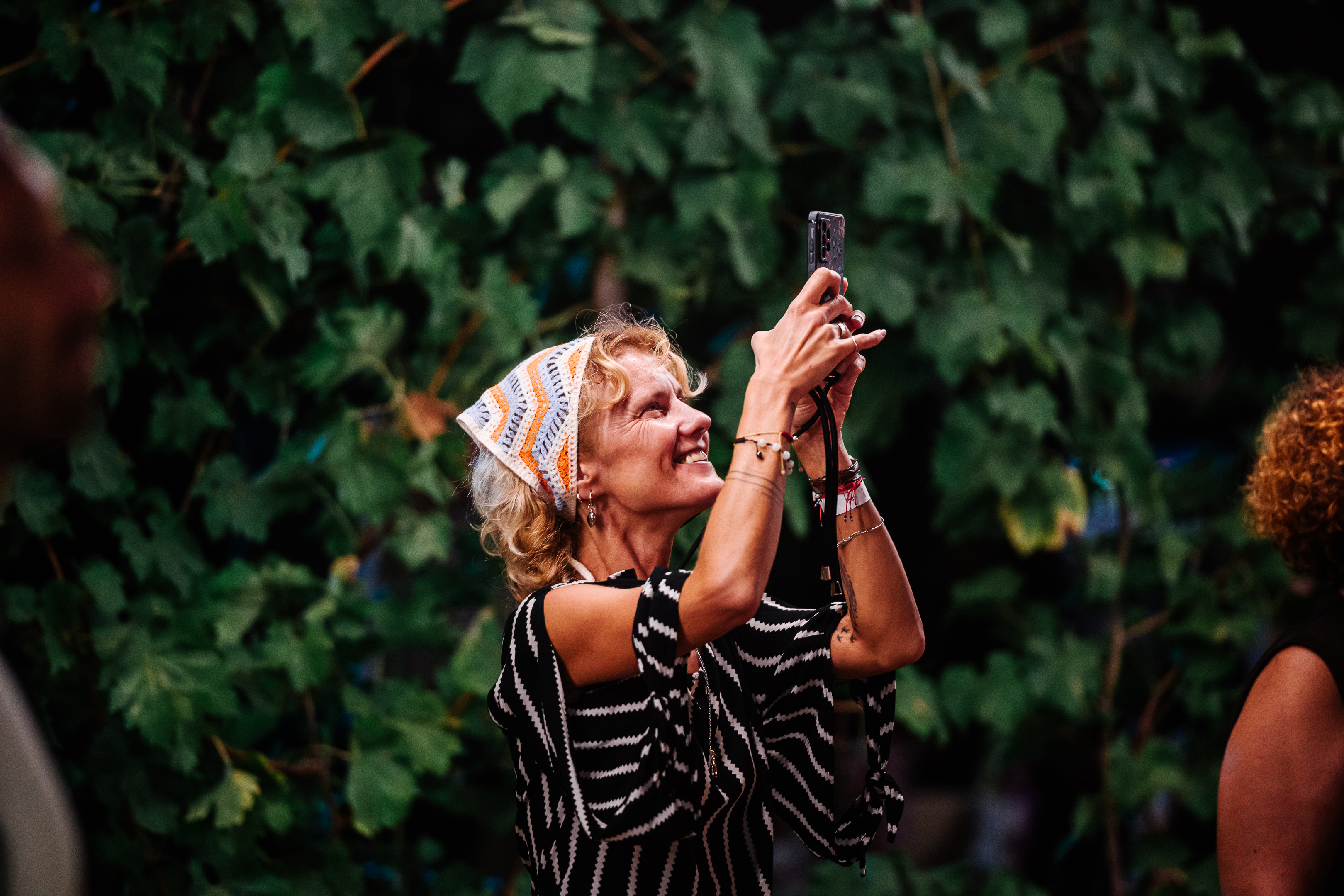
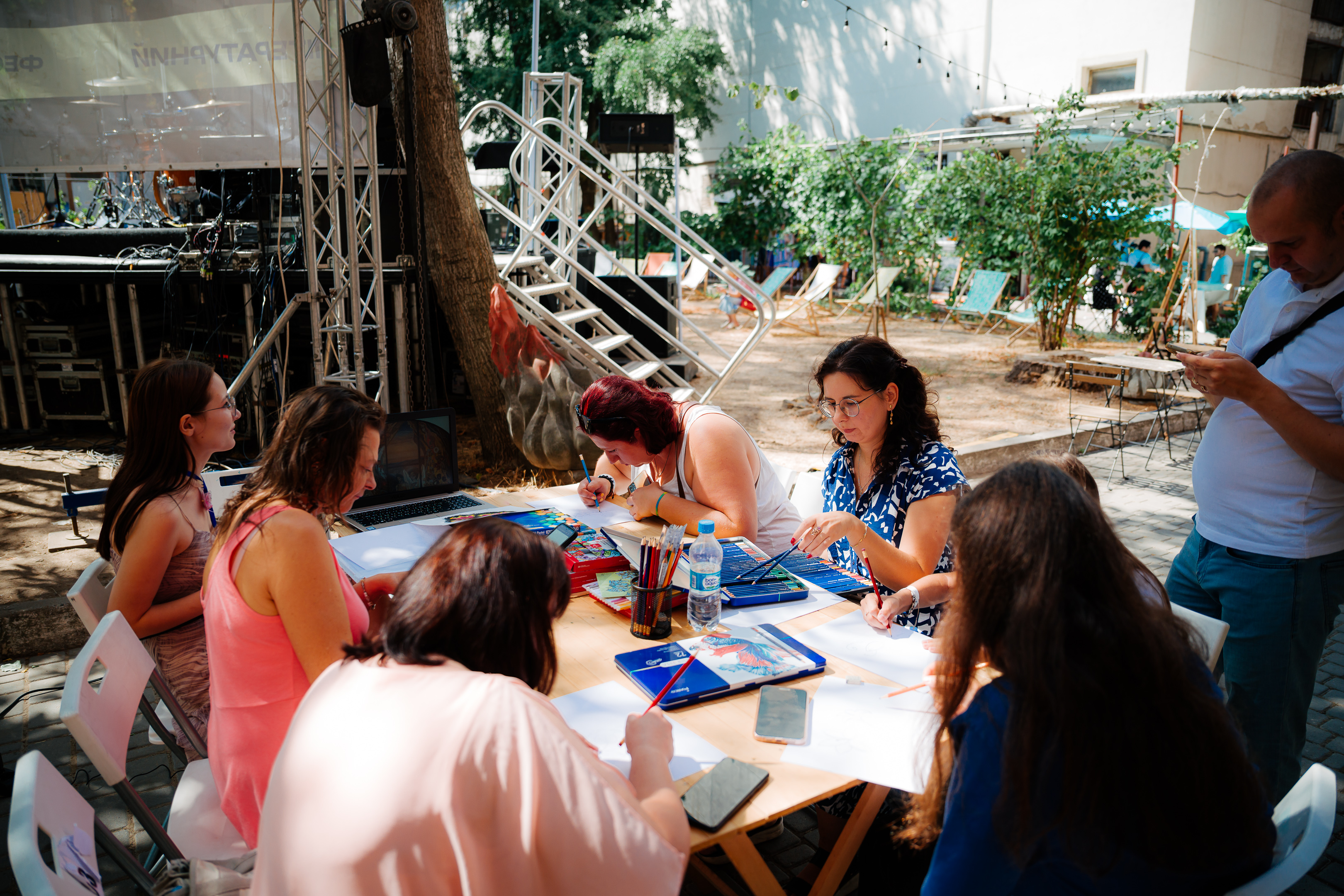
"When the idea of the festival first came up, my colleagues and I talked about creating a southern platform that could become a space for rethinking ourselves — a place where the voices of southern Ukraine would sound louder," says Andriy Khaietskyi.
"Building on the experience of those who have worked tirelessly for years to place Odesa on Ukraine's cultural map, we decided to add our own perspective. One of the festival's key missions was to encourage people to create new texts. That's why, for instance, we organized workshops — and we'll keep working with those texts moving forward."
According to Khaietskyi, about 5,000 people attended the festival. Despite events happening simultaneously across different locations, each venue was full.
"Until the very last moment, we had doubts — would we manage to capture the audience's attention, would people show up? It was important to attract not only avid readers, but also those who are just beginning to look toward literature yet hesitate to dive in. That's why the program included conversations like 'The Writer's Path: Breaking into Contemporary Ukrainian Literature' or 'Romantic Fantasy as a Gateway into the Ocean of Literature.'
Looking back now, I can say the festival exceeded our expectations in many ways — workshops sold out, registration for the mass Ukrainian dictation had to close a week early, queues for autographs sometimes stretched over an hour, and the literary slam couldn't fit into its scheduled two hours. Honestly, it's a joy to feel such interest from visitors."
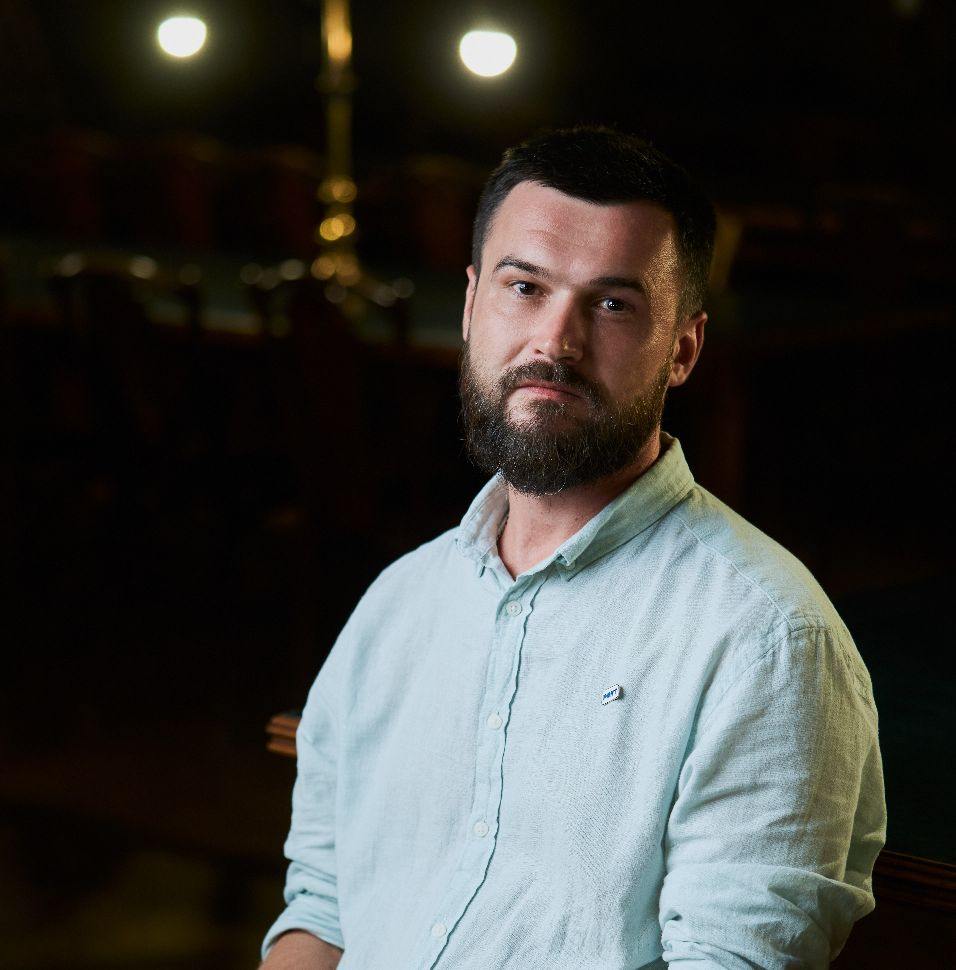
"Not long ago, we often complained that very few cultural events happened in Odesa — something that became even more noticeable after the full-scale invasion. Yet people haven't lost their thirst for knowledge. That's why we created Port: to fulfill two goals — to popularize the culture of the South and to show the rest of Ukraine that we exist: we write, we compose music, we hold exhibitions, we publish books, we craft. This summer, more and more such events started happening," adds Port's communications manager Ihor Filippov.
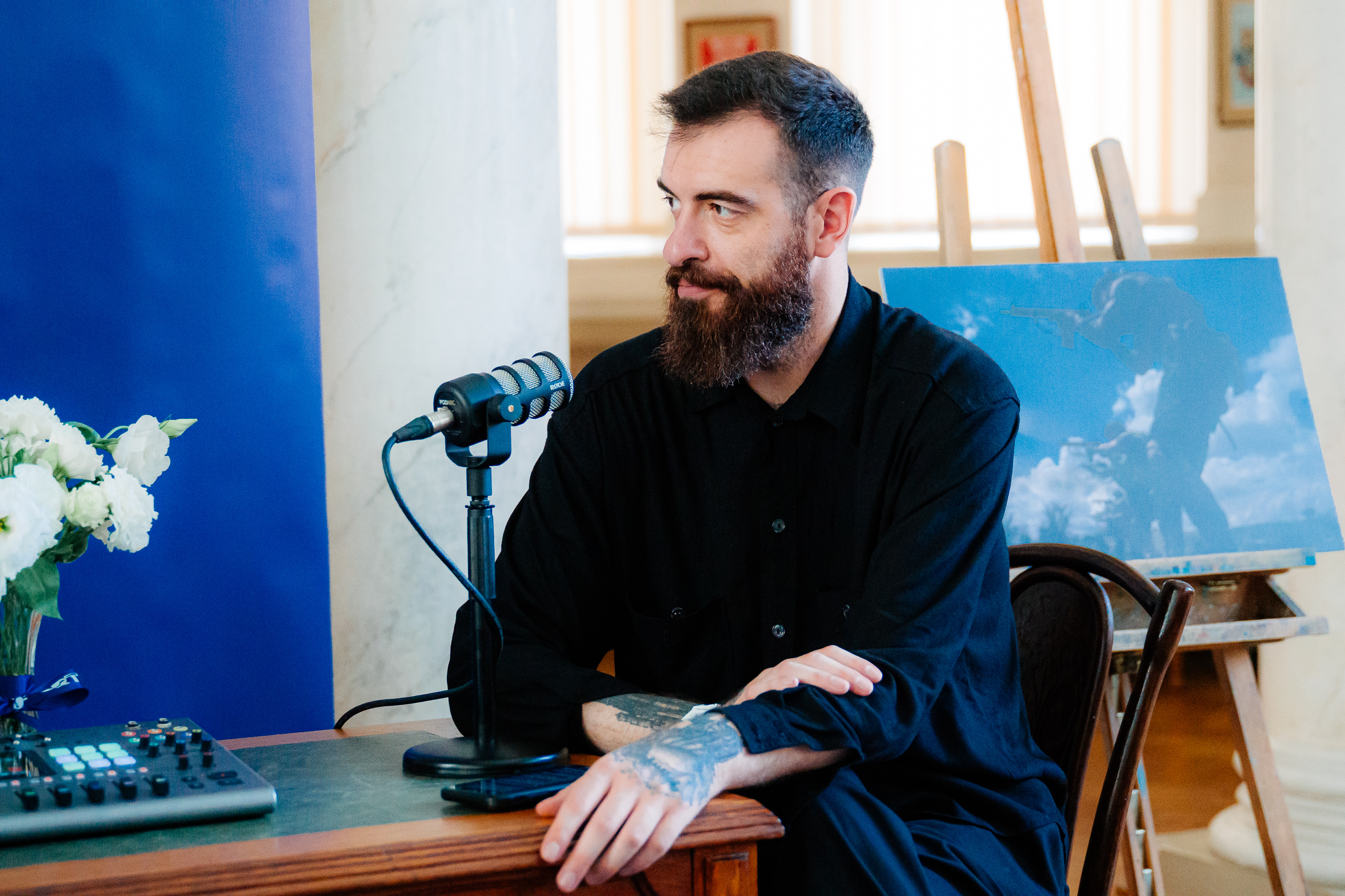
The festival's opening day coincided with the International Day of the Disappeared. On August 30, the stage of the Odesa Puppet Theater hosted an artistic act in support of families whose loved ones remain out of contact. The event was dedicated, among others, to Ukrainian sailors from the patrol boat Sloviansk and the assault boat Stanislav.
The performance started later than planned, as people kept arriving — soon, the hall was packed to the last seat.
During the show United by the Sea, poems by Andriy Khaietskyi, Nadiia Hlushkova, Kateryna Kalytko, and Svitlana Povaliayeva were performed to the delicate accompaniment of Volodymyr Yermolenko.
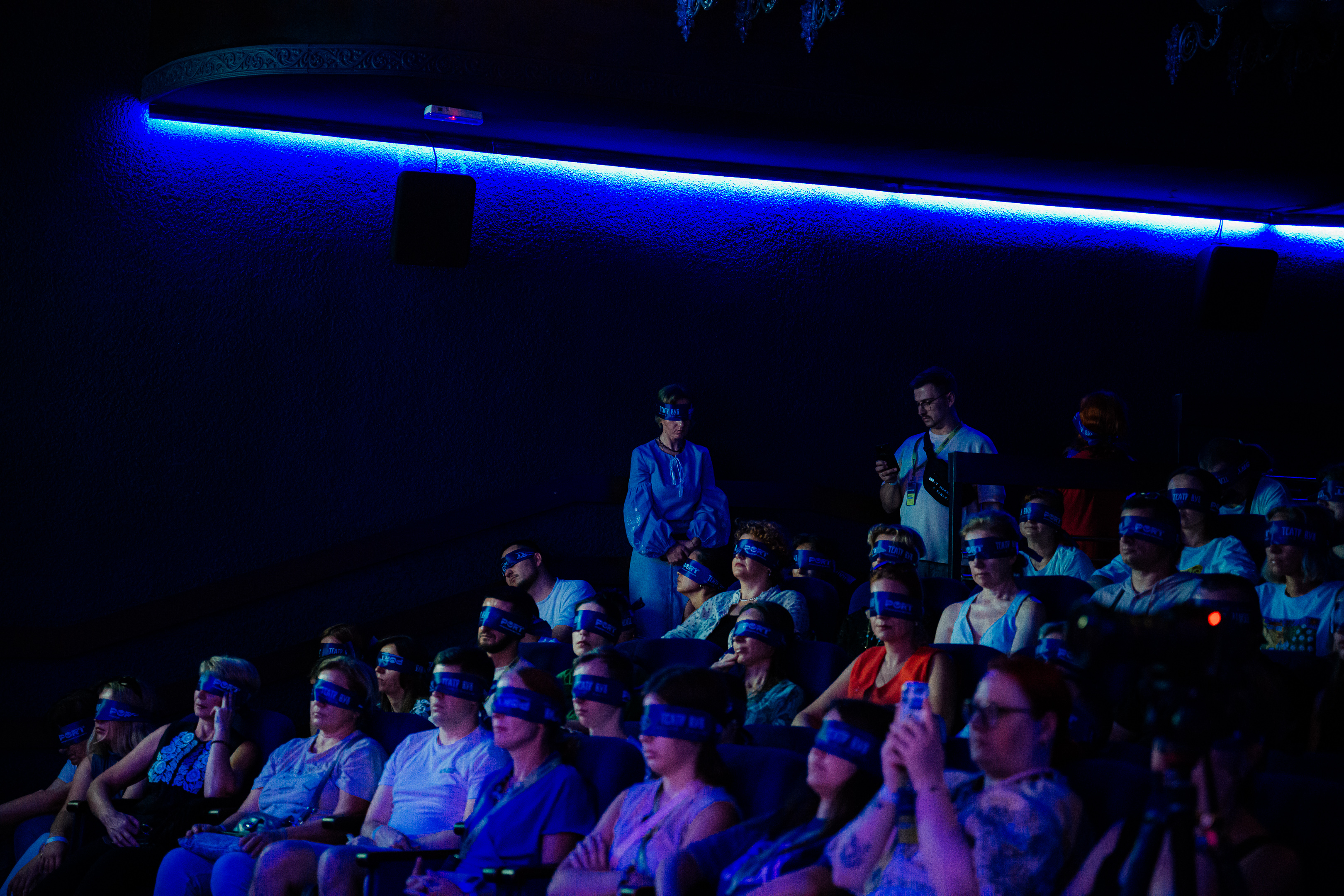
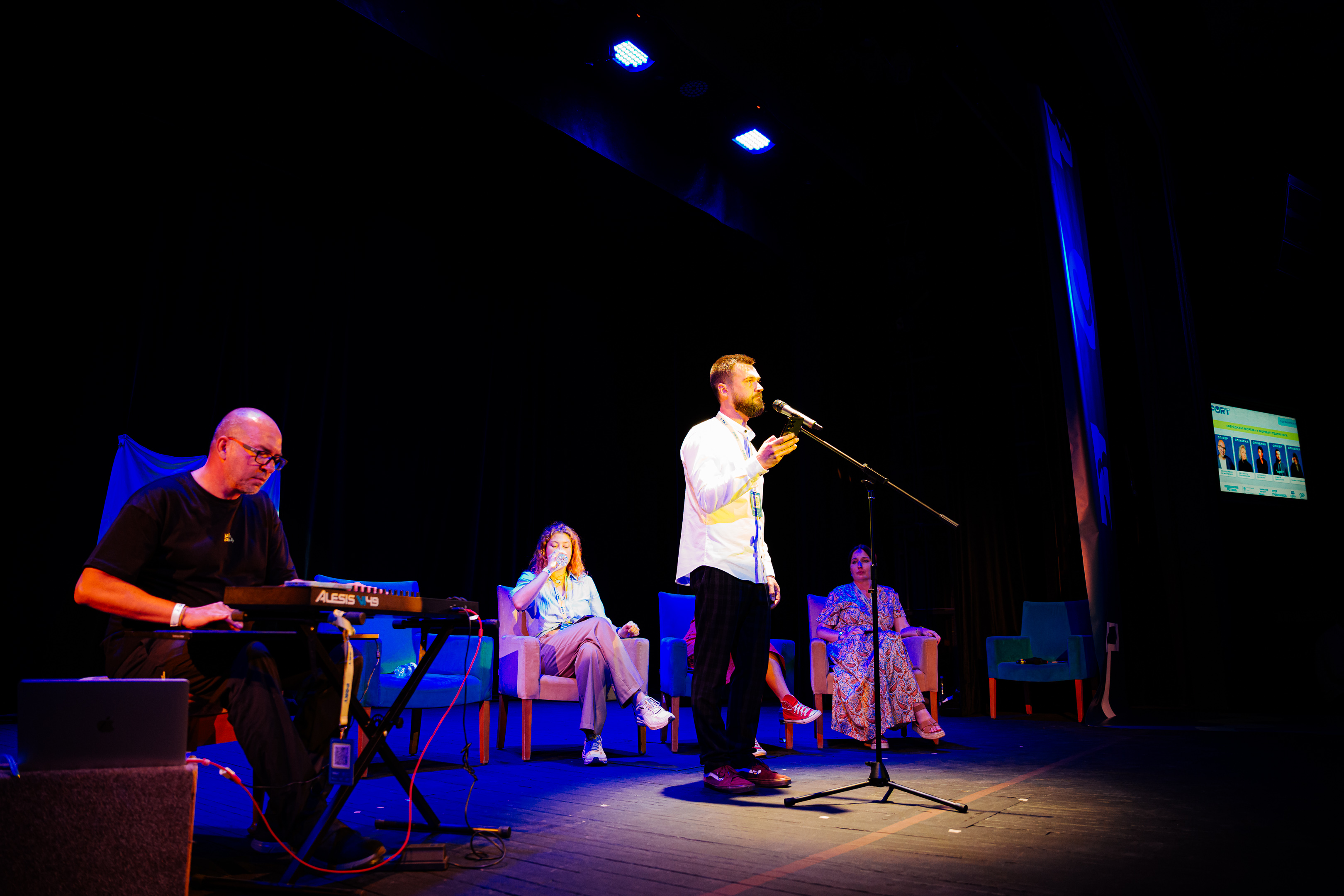
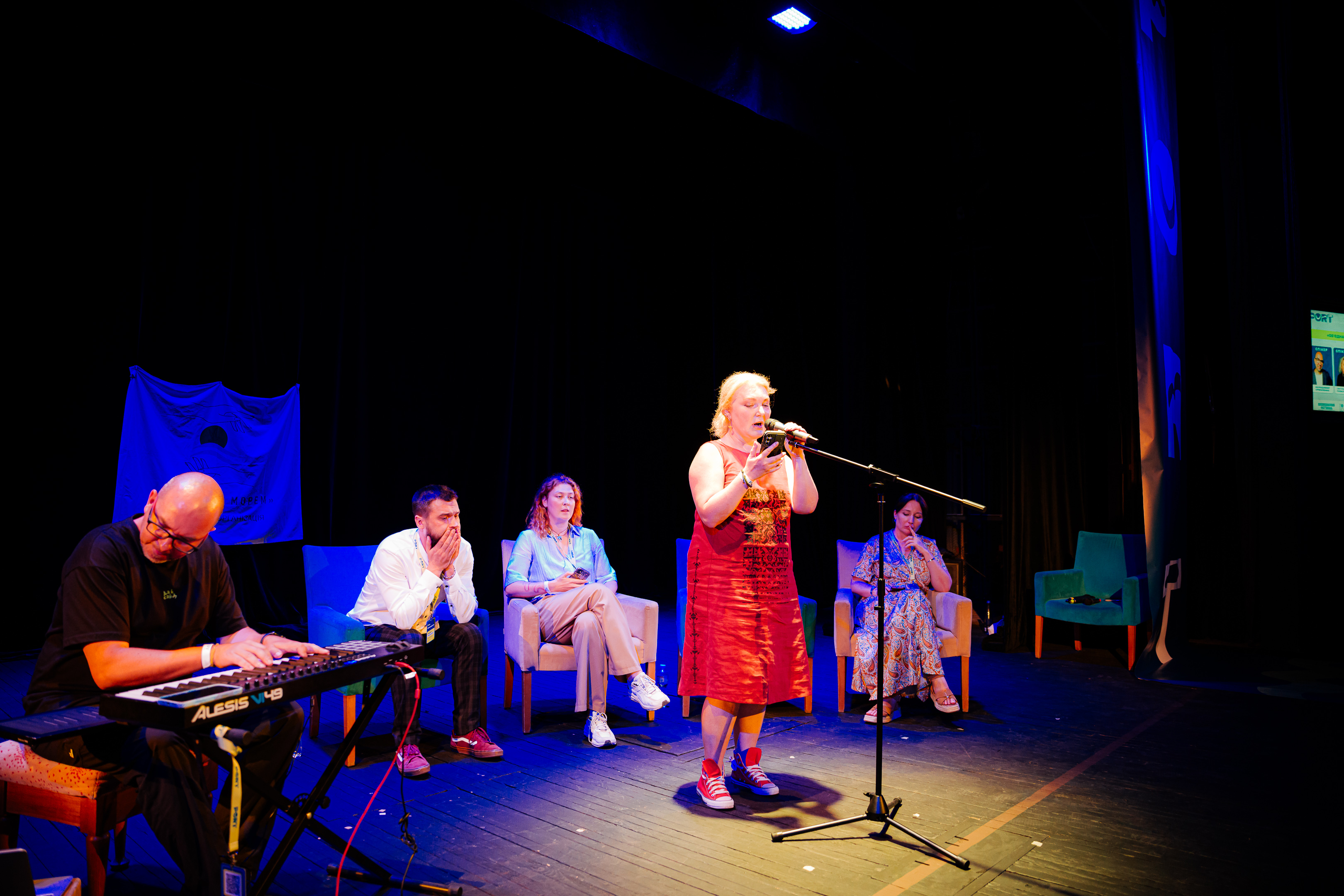
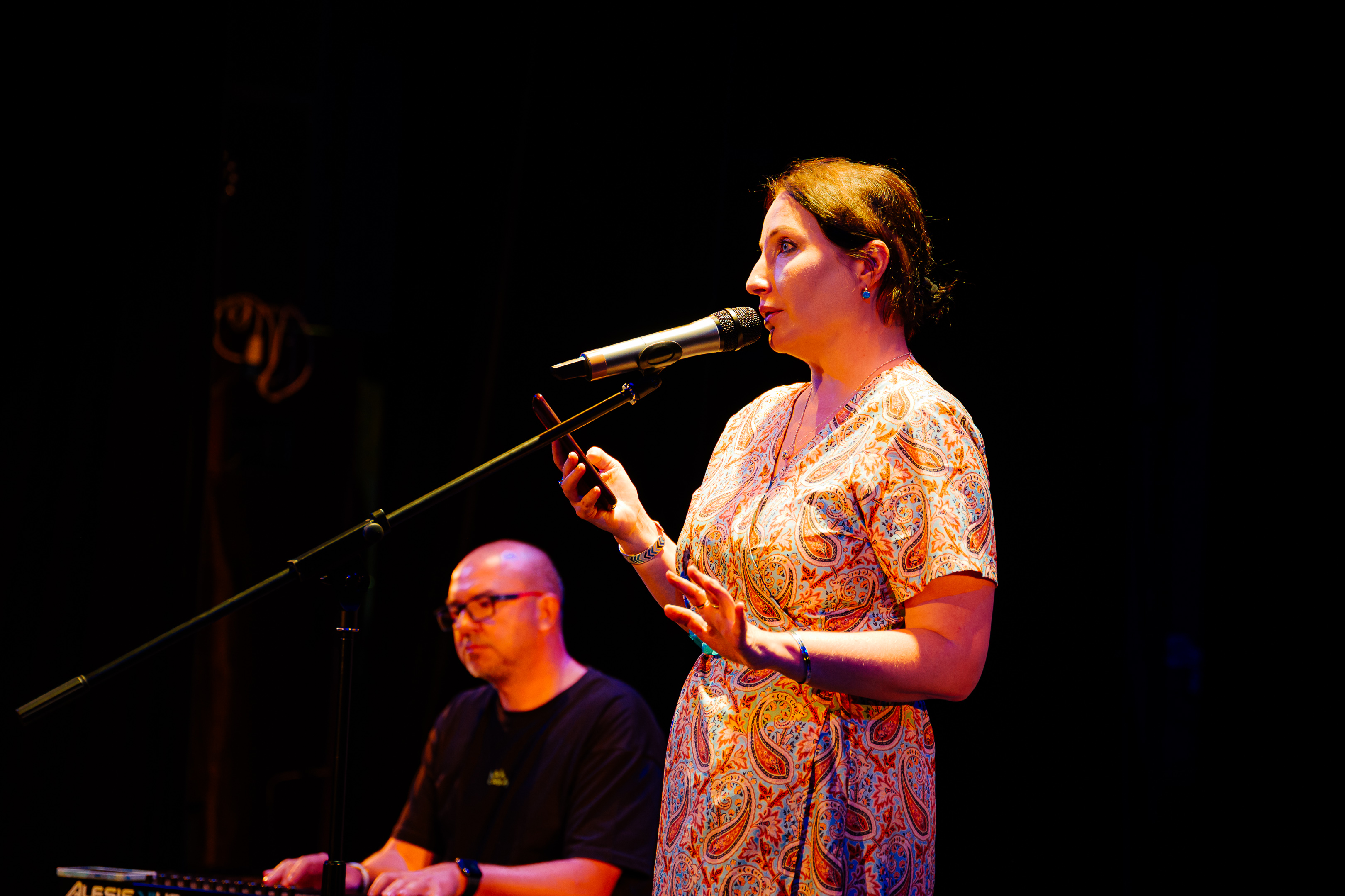
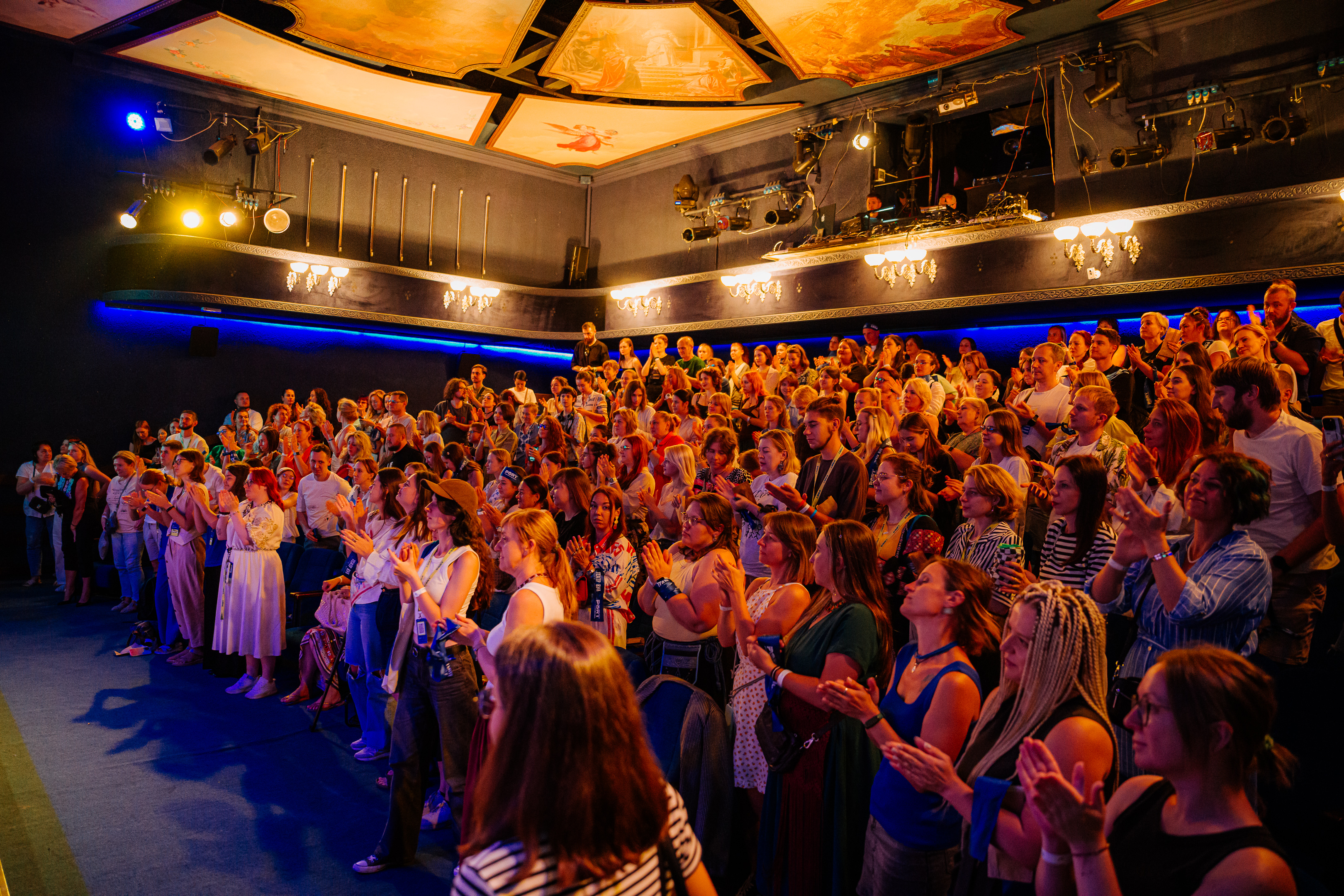
For the organizers, it was impossible to talk about the South without talking about Crimea — its stories, its people, its literature, its resistance.
Canköy, Aqyar, Kezlev, Kerç, Hurzuf — the cities annexed by Russia in 2014 — reappeared at the festival as installations and reminders, brought back into Ukrainian cultural space.
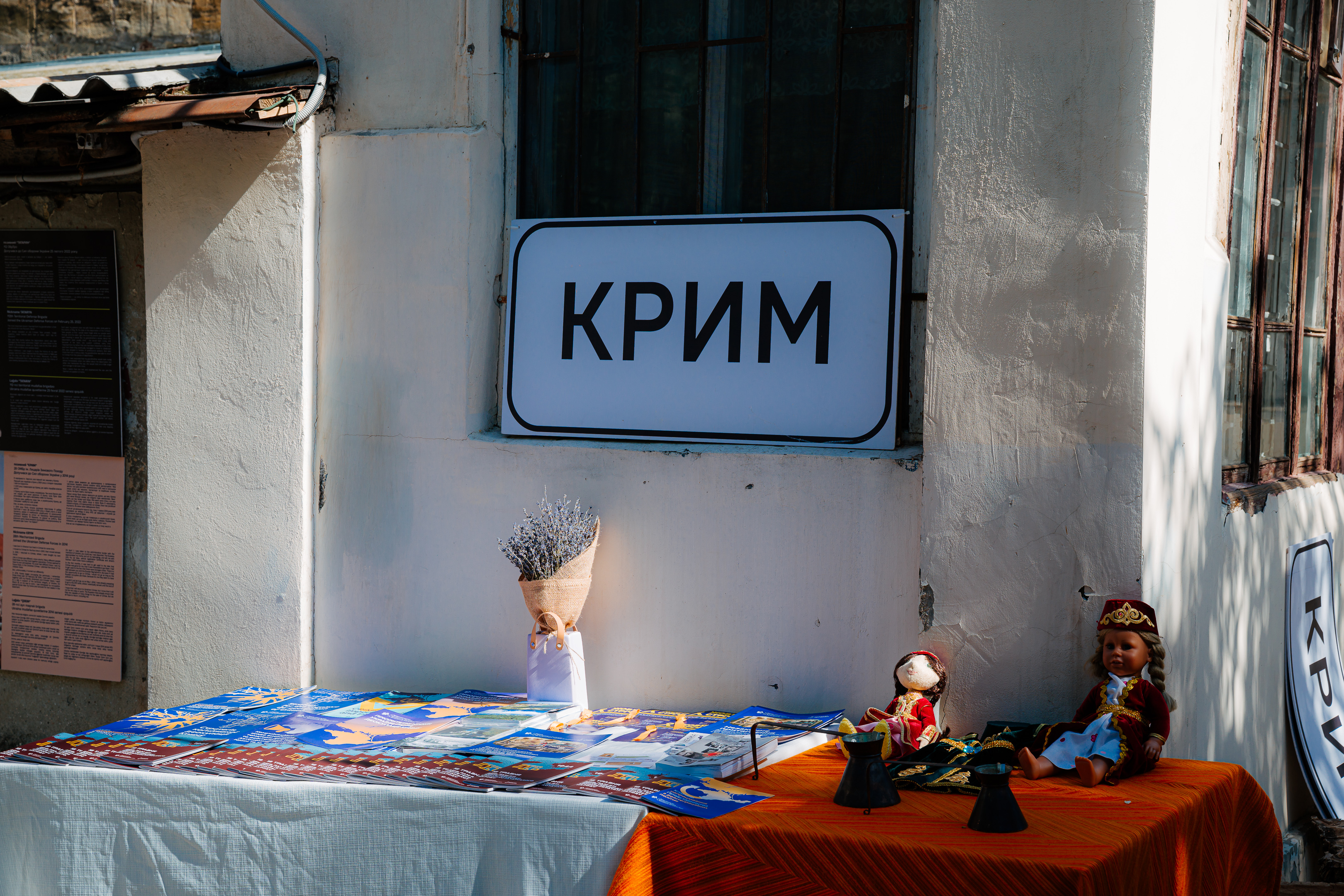
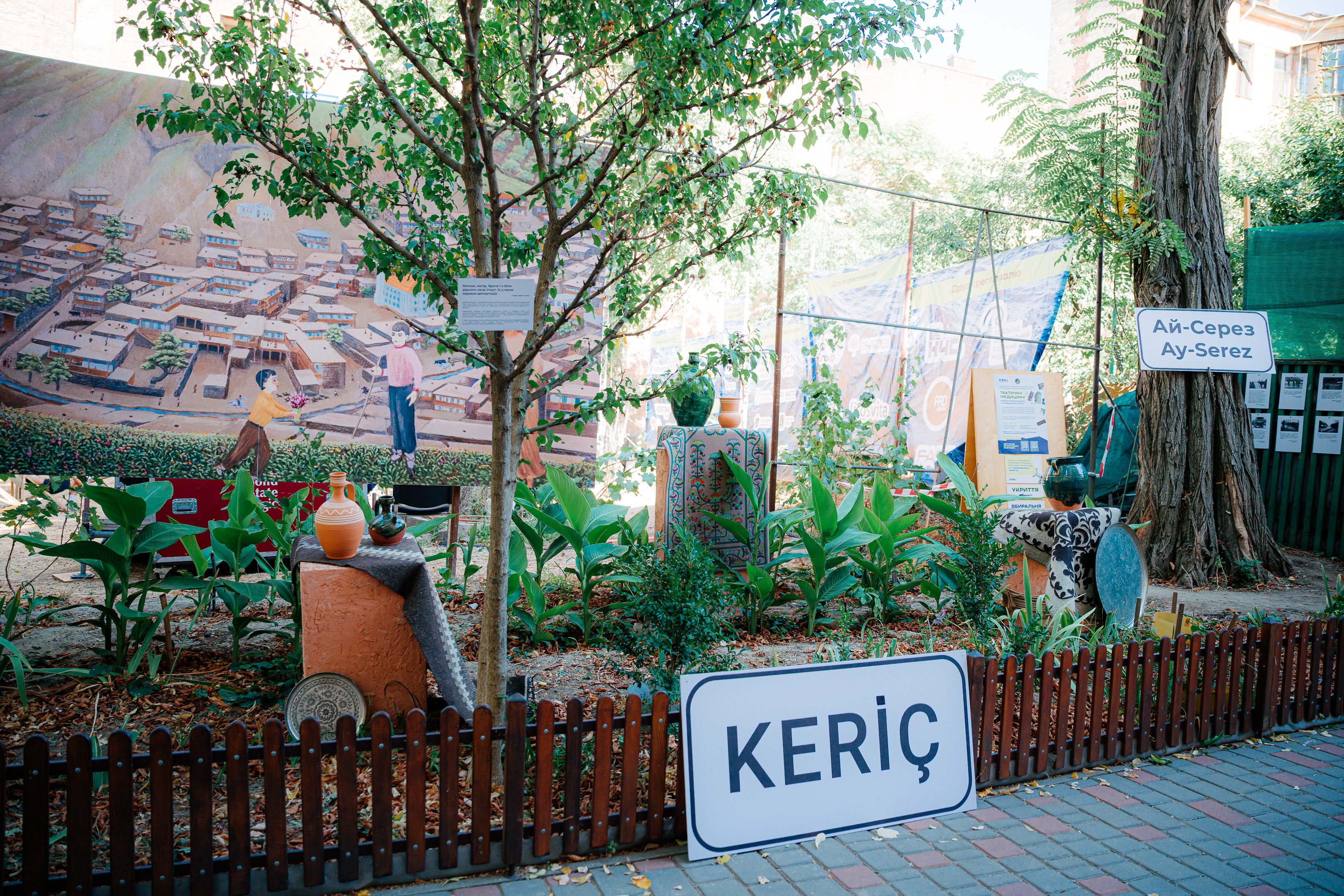
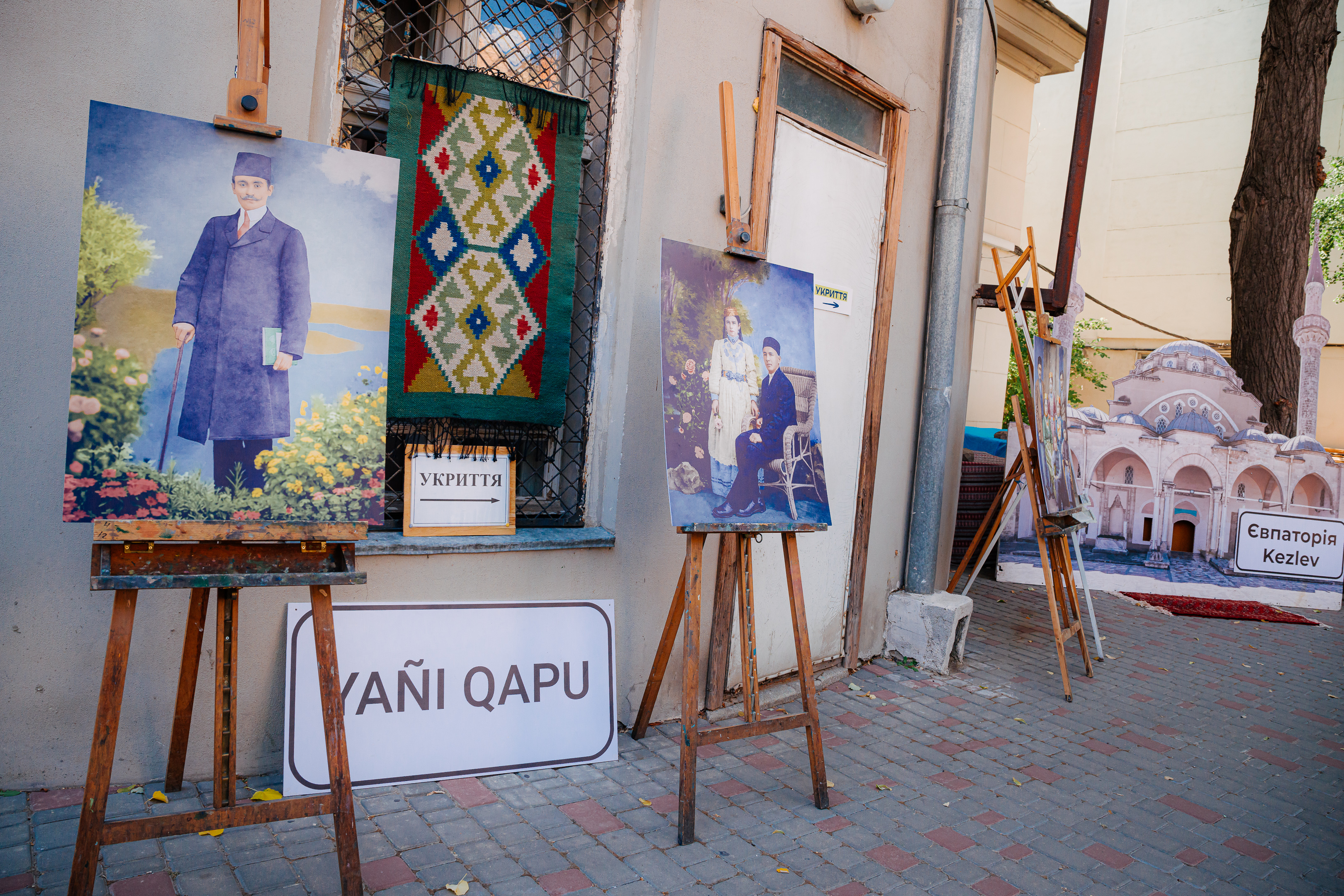
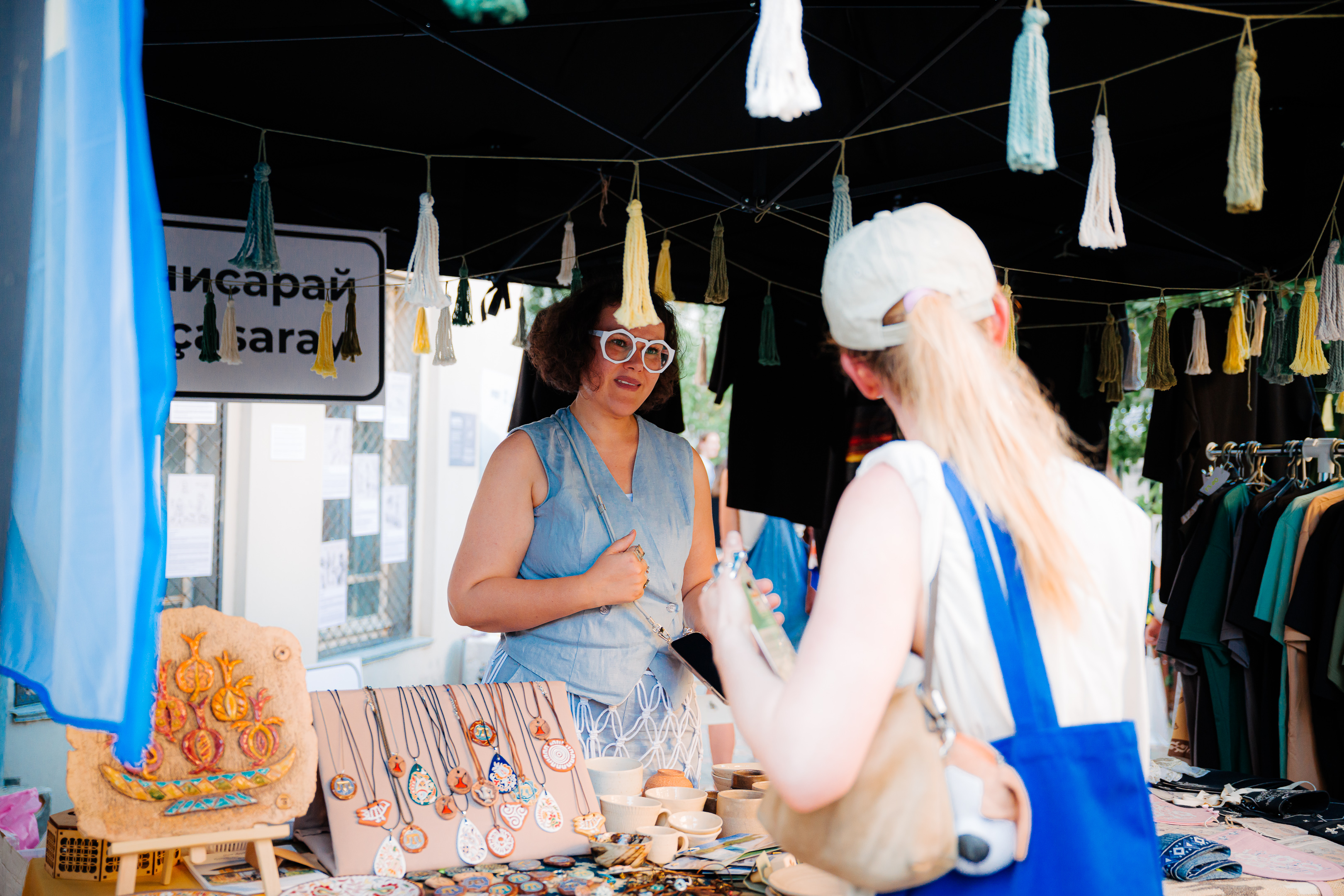
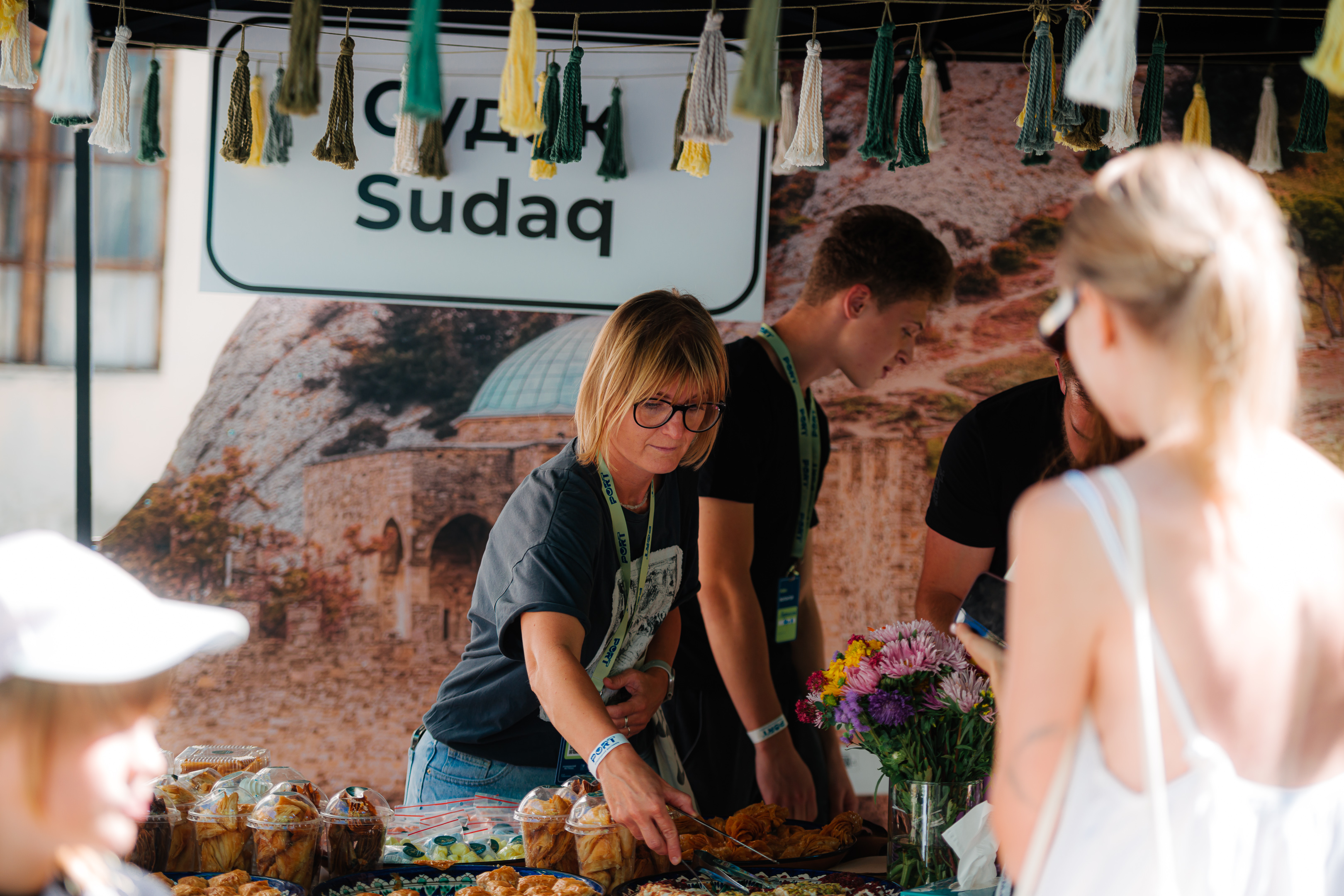
The Crimean program included: a book presentation by a political prisoner written while in unlawful Russian detention; a discussion about the Crimean Fig literary competition that unites Crimean Tatar and Ukrainian literature; exhibitions preserving voices of resistance, photographs, and memory of the deportation-genocide; the chance to write letters to Crimean political prisoners; and a fair of handmade works by Crimean artists.
The music program featured Crimean Tatar singer Aziza Eskender, who performed both original songs and traditional Crimean Tatar compositions.
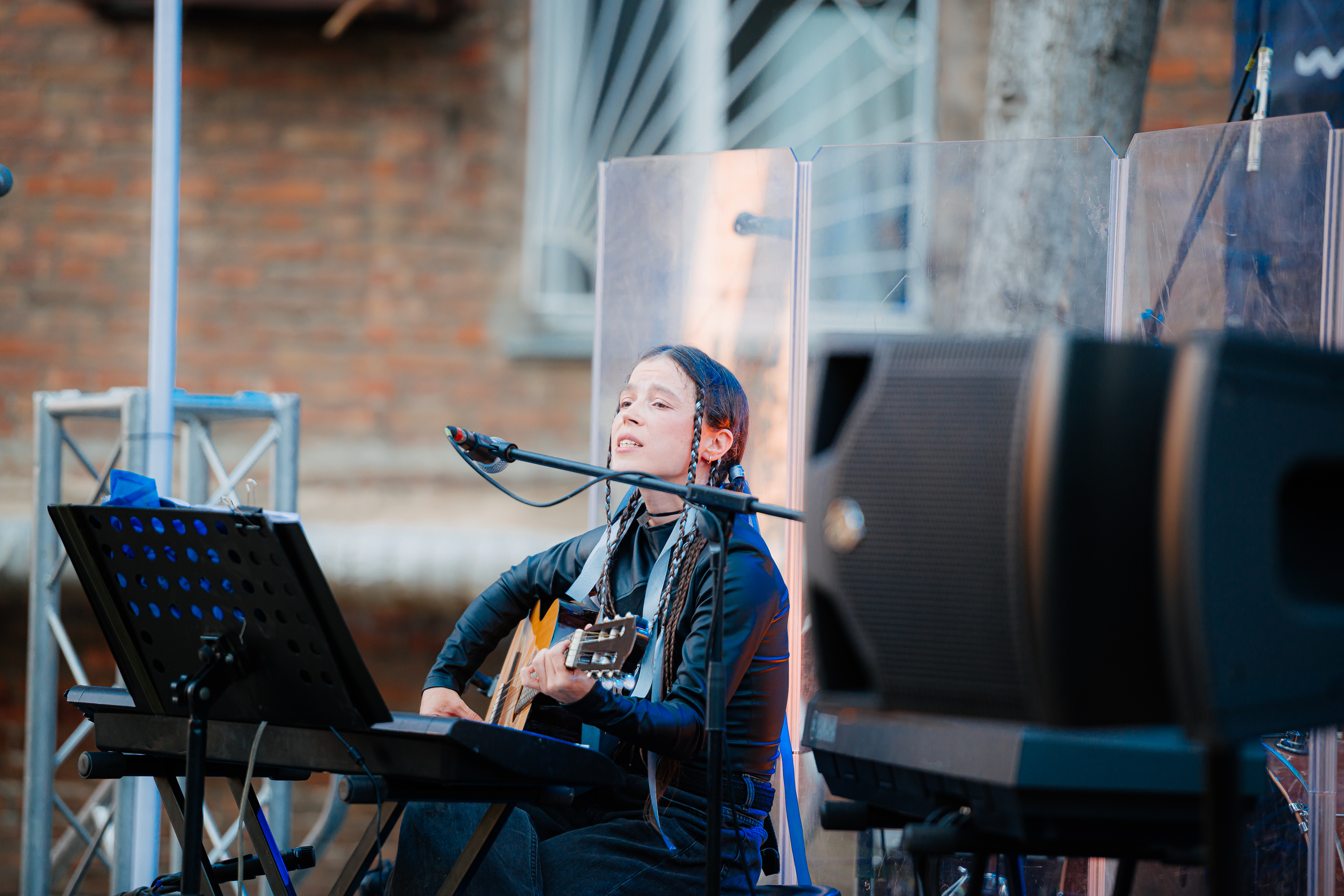
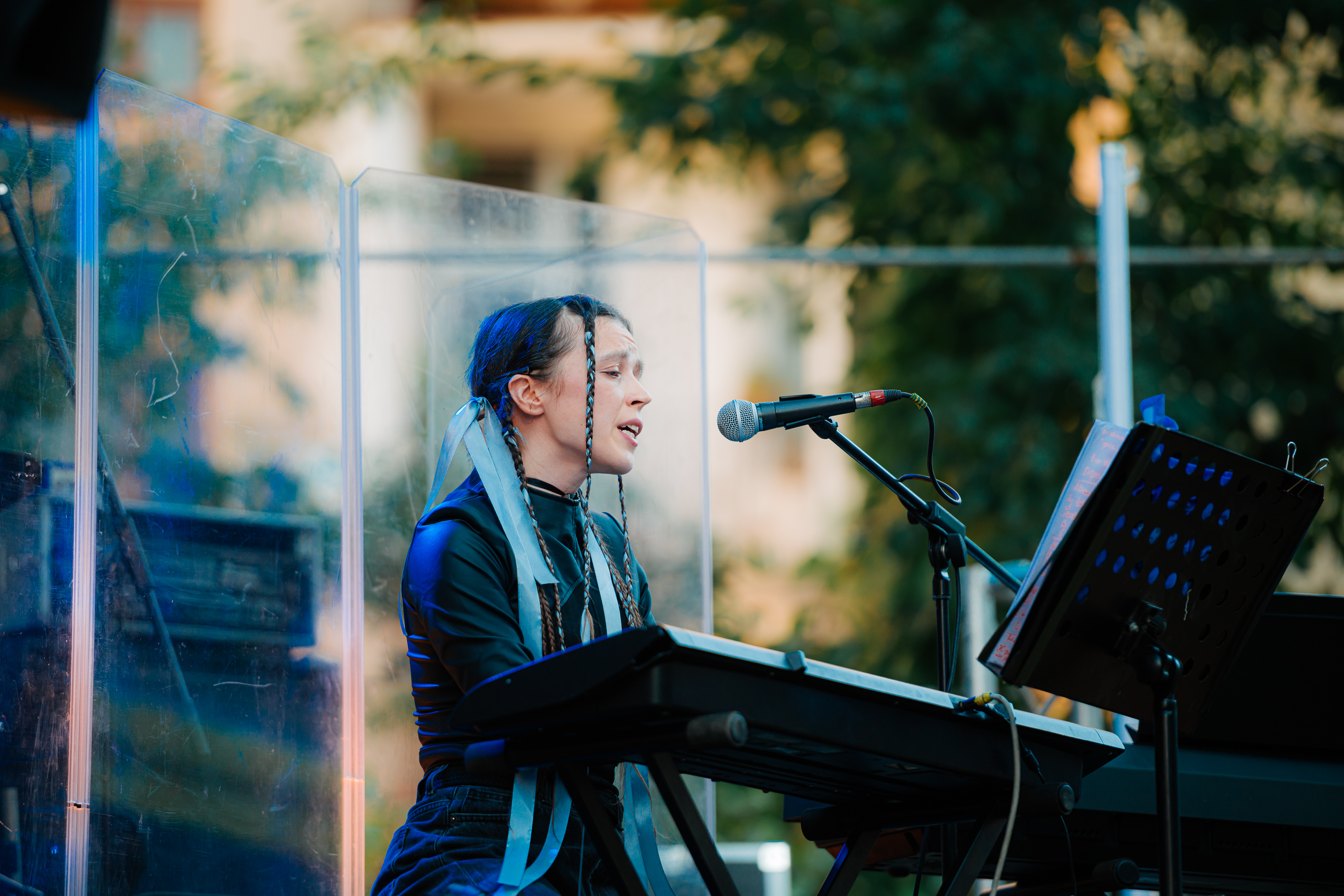
The main theme of the first Port was "The Shore of Freedom." Since the start of Russia's full-scale invasion, Odesa has lived under constant threat of missile strikes. Beaches that once welcomed locals and tourists alike are now reminders of war: from time to time, waves wash ashore naval mines, and the "shore of freedom" has become a frontline coastline, bearing the scars of battle.
"What does 'the shore of freedom' mean for us today?" visitors asked themselves, with many taking part in an essay competition on the topic. Andriy Khaietskyi shared his own reflections:
"For me, 'the shore of freedom' is not only the line where the sea meets the land, but a space where inner harmony and a sense of personal freedom are born. It's a place of cultural memory and Ukrainian identity that resists colonial overlays and imposed inferiority. It's where we live, and where the focus must be on us — those who are here. Freedom here is a process of constant searching, a boundary where everything changes, but at the same time comes alive again, takes root in new generations, and proves its indestructibility."
What is Odesa's true identity? For years, the Russian cultural machine simplified and devalued it, submitting it to an imperial myth: Odesa as a "comic appendage" or "exotic criminal corner." Hence the labels like "city of humor" or "gangster city." But Odesa's real culture is much deeper and uniquely its own.
"When talking about Odesa's cultural phenomenon, the first thing that comes to mind is the Odesa Film Studio. Its early 20th-century history was vibrant — but deliberately buried in later decades," says Khaietskyi.
"From 1922 to 1930, thanks to the activities of VUFKU (the All-Ukrainian Photo-Cinema Administration), Odesa became the country's main film hub. Major figures of Ukrainian culture worked here: Les Kurbas, Mykola Kulish, Heo Shkurupii, Yurii Yanovskyi, Oleksandr Dovzhenko, Mykhail Semenko, Vira Kholodna, Mykola Bazhan — and many more who were inspired by Odesa and created new cultural gems at the time.
Now is the time to bring that history back to the forefront. That's why, for example, at the Port Festival we showcased an exhibition of digital graphics by Valerii Puzik, who is currently researching that period and uncovering its importance for our southern history."
"Odesa has always been a city of constant transformations. It's clear that the high risk of occupation in spring 2022 and the ongoing missile strikes have changed how most people see themselves," Khaietskyi reflects.
For many years, Odesa was positioned mainly as a resort city, where cultural content was limited to light entertainment — things meant to make you laugh and relax. Now Odesa feels like an important point for the entire country on the Black Sea coast. It is discovering the richness of its region for itself and for all of Ukraine, and it is searching for answers about the complexities of its history. That's where the real life is happening.
In recent years, Khaietskyi notes, Odesa was often treated as a kind of "wild field" — a Russified and supposedly marginal cultural space, impossible to change from within, requiring external influence to "fix" it.
"That's why people often brought cultural or educational projects here — not so much to entertain or unite communities, but to 'teach' or 'heal.' Yet, for many years, local cultural figures were working tirelessly, and it wasn't fair to disregard their efforts.
That's why Port was designed from the start as a festival where participants from other cities could collaborate with local cultural leaders — to discuss, rethink, and strengthen the vision of Odesa and the South as a whole. We weren't aiming to fight against what people call the 'Odesa myth,' but rather to start a new unifying literary tradition."
The article is produced by UkraineWorld with the support of the Askold and Dir Fund as a part of the Strong Civil Society of Ukraine - a Driver towards Reforms and Democracy project, implemented by ISAR Ednannia, funded by Norway and Sweden. The contents of this publication are the sole responsibility of UkraineWorld and can in no way be taken to reflect the views the Government of Norway, the Government of Sweden and ISAR Ednannia.
